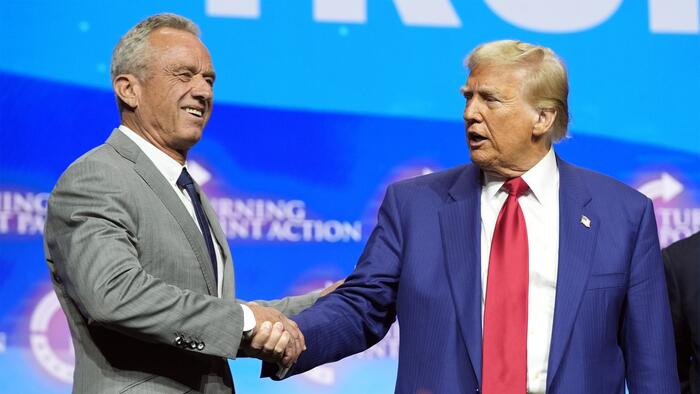In a significant move following the recent presidential election, President-elect Donald Trump has named Robert F. Kennedy Jr. as his nominee for Secretary of Health and Human Services (HHS). The announcement, made during a campaign rally in Duluth, Georgia, resonated with Trump’s commitment to health reform in America. He expressed confidence in Kennedy’s ability to drive positive changes within the nation’s health sector, referring to him as someone who would be allowed to “go wild” in pursuing his health advocacy goals. Trump emphasized the need to address the widespread issues related to health crises in the country, indicating that he trusts Kennedy to implement strategies aimed at improving public health and combating the negative impacts of the industrial food and pharmaceutical complexes.
Kennedy, a 70-year-old health advocate, has a controversial track record due to his outspoken views on vaccination and public health policy. In a post on Truth Social, Trump outlined Kennedy’s goals for the HHS, highlighting his intent to protect Americans from harmful substances and to restore integrity within health agencies through rigorous scientific research and transparency. Trump criticized the current state of public health, where misinformation from pharmaceutical companies and food industries has become prevalent. He framed Kennedy’s appointment as a step toward addressing chronic diseases and re-establishing a health system that prioritizes the safety and wellness of Americans.
Despite the enthusiasm surrounding Kennedy’s nomination, political analysts cautioned that his confirmation may not be a straightforward process. Concerns stem from Kennedy’s history of questioning the efficacy of vaccines and alleging conspiratorial involvement among influential health figures, including Anthony Fauci and Bill Gates. His candidacy has sparked debates within the Senate and among the public, as legislators weigh the potential implications of his policies on vaccination and public health. While Kennedy maintains that he does not seek to eliminate vaccines, he advocates for comprehensive safety studies to ensure informed choices by individuals regarding health interventions.
Kennedy’s commitment to health reform extends beyond vaccines, as he has also expressed intentions to challenge the fluoridation of drinking water. He has cited research indicating that fluoride exposure may contribute to cognitive decline in children, reflecting his broader philosophy of advocating for health policies rooted in scientific evidence and individual autonomy. His dedication to advocating for a healthier America aligns closely with Trump’s platform and promises to elevate the discussion around critical health issues facing the nation.
The implications of Kennedy’s potential leadership at HHS invite interest and concern from various sectors. Many supporters view him as a much-needed reformer who can shift the focus back to scientific rigor and public trust in health agencies. However, critics warn that his controversial positions could exacerbate existing divisions around vaccination, thus challenging the effectiveness of public health initiatives. The upcoming confirmation process may serve as a battleground for these competing narratives, testing the resolve of the new administration to balance public health advocacy with political realities.
In summary, the nomination of Robert F. Kennedy Jr. as Secretary of Health and Human Services represents a pivotal moment in American health policy, reflecting both the aspirations and complexities of the incoming Trump administration. As health advocates and lawmakers prepare for the forthcoming discussions, the focus will likely be on Kennedy’s ability to harness his reformist agenda while addressing the multifaceted challenges that lie ahead in the realm of public health. The potential changes could signify a renewed approach to combating chronic diseases, enhancing transparency in health research, and reinforcing the importance of individual choice in health-related decisions.

